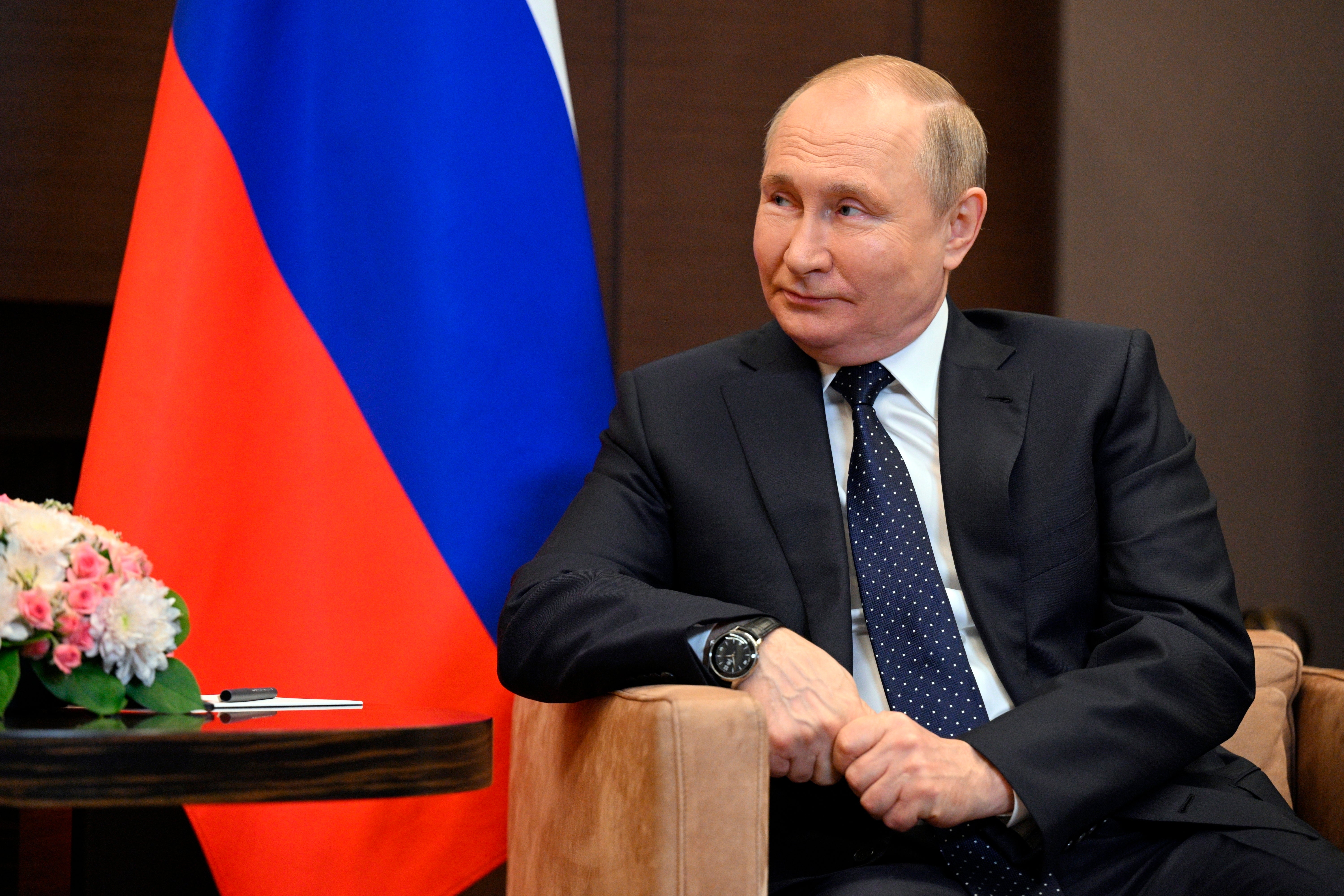UK condemns Putin’s ‘despicable’ blockade preventing Ukraine food exports
There are no plans for Royal Navy warships to be involved in efforts to break the blockade.

Your support helps us to tell the story
From reproductive rights to climate change to Big Tech, The Independent is on the ground when the story is developing. Whether it's investigating the financials of Elon Musk's pro-Trump PAC or producing our latest documentary, 'The A Word', which shines a light on the American women fighting for reproductive rights, we know how important it is to parse out the facts from the messaging.
At such a critical moment in US history, we need reporters on the ground. Your donation allows us to keep sending journalists to speak to both sides of the story.
The Independent is trusted by Americans across the entire political spectrum. And unlike many other quality news outlets, we choose not to lock Americans out of our reporting and analysis with paywalls. We believe quality journalism should be available to everyone, paid for by those who can afford it.
Your support makes all the difference.The UK and allies are working to help Ukraine export vital food supplies but there are “no current plans” for Royal Navy warships to help break Russia’s blockade.
The Government said it was working “intensively” with partners to find ways to allow grain exports to resume, as Cabinet minister Grant Shapps warned of famine causing more deaths than the invasion.
US secretary of state Antony Blinken has also discussed the situation in talks with his Ukrainian counterpart amid fears the Black Sea blockade is causing a global food crisis.
The idea of a “protective corridor” from Odesa was raised by Lithuania’s foreign minister Gabrielius Landsbergis with Foreign Secretary Liz Truss, The Times reported, with the potential for a “coalition of the willing” to provide ships.
But the UK Government played down the prospect of Royal Navy warships risking a clash with Russia to break Vladimir Putin’s blockade.
A UK Government spokesman said: “Putin’s despicable blockade of Odesa is preventing food getting to people who need it.
“We will continue to work intensively with international partners to find ways to resume the export of grain from Ukraine.
“However, there are no current plans to deploy UK warships to the Black Sea.”
Under an international convention, warships seeking to enter the Black Sea through the Bosphorus would have to provide 15 days’ notice to the Turkish government.
The crisis was also discussed in a call between Mr Blinken and Ukraine’s foreign minister Dmytro Kuleba on Tuesday.
US state department spokesman Ned Price said: “The secretary noted the global food security crisis resulting from President Putin’s brutal war requires a global response, and they discussed potential means to export Ukraine’s grain to international markets.”
Mr Shapps, the Transport Secretary, met with his Ukrainian counterpart Oleksandr Kubrakov in Germany last week to discuss how help could be provided to help grain leave.
He told Sky News: “I think it’s absolutely essential that we do, unless there could be a lot of hunger and indeed even famine that could dwarf the numbers involved in the war itself.
“It’s hard to overestimate how much Ukraine was and is the breadbasket of the world.”
The Ukrainian ambassador to the UK has meanwhile said talks are “ongoing” between the UK and Kyiv to use Royal Navy warships to reopen Odesa and its other ports on the Black Sea and demine its waters.
During an interview with TalkTV’s The News Desk, Vadym Prystaiko said President Zelensky is “working with (the UK) government” to force an end to the blockade, adding that he believes the “viable solution is (for) the ports to be unblocked”.
He said: “This is one side, and you’re right, we’re having this conversation. But also it was heavily mined. The whole Black Sea, especially near Ukraine, is heavily mined, and is very dangerous for the seafarers.
“So we have also to demine this. This is another conversation we have also had with your government, and we’re preparing ourselves from the point of view of equipment. We need ships. We are buying them. There is the whole long conversation of how to do it.
“I believe that something can be done here. And don’t forget that your ships are welcome, that you’re coming to our part of the Black Sea. We welcome your ships.”